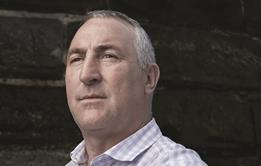Alan Penton’s story is a powerful and timely one for the NHS.
‘The best ambulance services are investing a lot of time and effort in building links with general practice’
We know we need to transform the way we work, engaging local communities in a way that supports them to find their own answers to the intractable problems that cause ill health. Tackling loneliness and building a sense of purpose in communities that have little trust in their public services is a much more complex challenge than treating disease.
There are general lessons for the NHS as a whole: changing the relationship with the people we serve and their communities takes a long time − years not weeks; credibility is hard to gain but easily lost; organisational boundaries cut across the way most of us want to receive care when we need it.
Making the links
There is also a parallel between the fire and rescue service and the ambulance service. There is a clear recognition that paramedics have a role in reducing pressure on hospitals by keeping people at home or taking them to community settings rather than accident and emergency. In reality, making the shift is difficult.
The best ambulance services are investing a lot of time and effort in building links with general practice, although the effort involved when an average ambulance trust works with 1,000 practices borders on the heroic.
When life is challenging − and it is only going to get tougher for the NHS − it may seem easier to respond to crises or put out fires rather than build relationships across all our communities. But if we are serious about transforming care, that’s what we all need to do. l
Rick Stern is chief executive of the NHS Alliance
Topics
Alan Penton: 'The idea that it will take the NHS five years to change is planning to fail'

The fire service transformed from being reactive to focus on prevention − a journey the NHS could learn from.
- 1
 Currently
reading
Currently
reading
Rick Stern on people power
- 3
































No comments yet